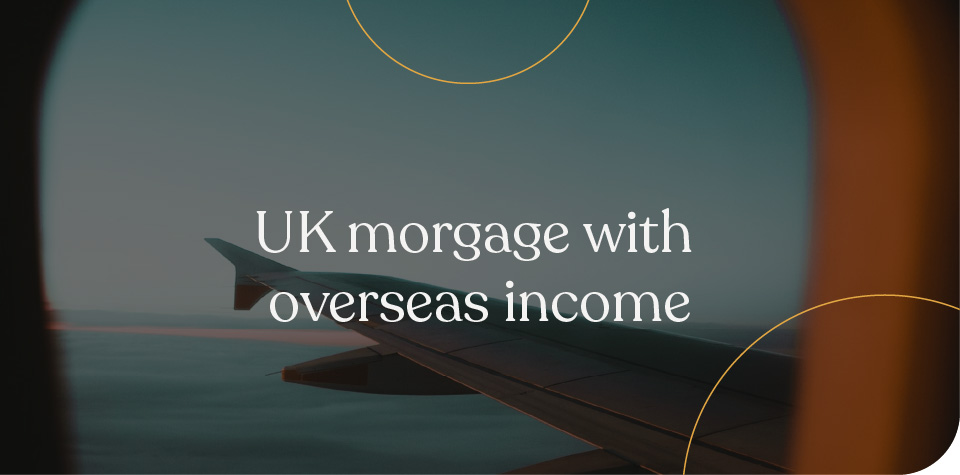
Is it possible to get a mortgage in foreign currency in the UK?
If you have only earned income overseas, getting a mortgage in the UK may be difficult.
Most UK lenders only accepted income earned in the UK and paid in pounds; this is why finding a UK mortgage with foreign currency can be challenging.
Lenders consider currency exchange and less familiar employment sectors to be a higher risk.
It may be more challenging to prove foreign currency income. Additional checks can take time and resources that UK mortgage lenders don’t have.
However, there are mortgage lenders that will accept a variety of foreign currency mortgages, we can help you, start below now:
Get started online
What currencies are accepted?
Once you have established that lenders are willing to give UK property mortgages to borrowers based on foreign income, all you need is to find the right lender to suit your particular circumstances.
Here is a list of some foreign income currencies that UK mortgage lenders might consider.
- Euro (EUR)
- US Dollars (USD)
- Yen (JPY)
- Australian Dollar (AUD)
- Polish Zloty (ZL).
What are the main factors that affect overseas income mortgage applications?
These are the main factors influencing lending decisions and whether an individual earning foreign income is eligible for mortgage approval.
- Are they self-employed or employed abroad? (If self-employed, is the company UK registered?)
- The currency in which the income is paid
- The country where the work is done
- The name, size, and location of the company/organisation from which the income is received. If they have branches in the UK, or if not, what their accountancy firm has?
- Which country is tax paid in (the UK or country of origin)?
- The amount of income earned and the length of time it has been earned
- The sector/type of work the applicant does
- The amount and origin of the deposit (and in which country it is held)
What if my employment status is a problem?
Employed workers who earn income in foreign currency have access to far more lenders than self-employed workers.
Only a few more specialist lenders will consider foreign self-employed mortgages. This could be due to difficulty in establishing and verifying actual disposable income and calculating reasonable affordability.
Different tax systems exist from one country to the next. It is difficult for UK lenders to understand multiple liabilities and often proves too costly and time-consuming.
Therefore, lenders will almost always ask for self-employed income to be earned abroad. The company must have full accounts drawn up and tax paid as if it was from the UK. This rule may not apply to all cases.
Only a few mortgage lenders will lend to borrowers with a suitable business case and who can show enough evidence to support their approval.
Get started below:
Get started online
Will the currency earned have an impact on mortgage approval?
The currency in which you earn your income can impact whether or not you can get the mortgage that you desire. A lender will first ask the mortgage applicants what currency they earned their income when assessing their situation.
All UK lenders will accept income in GBP, however, only a few lenders offer euro mortgages. Fewer lenders offer mortgages based on US Dollars.
You don’t have to be denied because of the foreign currency you use for your income. There are other lenders available.
We have an expert mortgage broker available to assist customers who earn their income in currencies other than the British pound.
Simply click the link below to start your mortgage journey.
Get started online
What will influence mortgage approvals based on the job/work location?
Your chances of getting a mortgage application approved are higher if you’re employed in France, Germany, or Spain than if you live in another country, especially if that country is subject to financial sanctions. This will determine whether the “story of the situation” is possible.
Most lenders might want to know whether you plan to live in the property or if it will be left unoccupied or let out without consent.
This would violate the terms of the mortgage. The lender will also want to know the strength of the country’s economy and whether the income is genuinely sustainable.
Can the overseas company where I work impact my mortgage approval?
This comes down to risk. Lenders will approve borrowers with foreign income working for reputable companies in the UK more than someone who works in a bedroom in a start-up.
It is much less likely that a multinational business of a significant size would place itself or its employees under scrutiny from a revenue or tax perspective than a company with no ties to the UK.
Approvals are often given to those who work in an overseas arm of the company for a brief period.
What impact could my pay have on the mortgage?
It is highly unlikely that a UK mortgage lender will approve you if you receive overseas income in cash. This is due to the nature of the risk and the difficulty in validating the source of funds. Lenders would prefer that your money be paid into a bank account.
It is better if the bank is a UK bank account. If your income is paid into the UK or branches within the UK, it is generally considered less risky by UK lenders when considering borrowing from someone with an overseas income.
It can matter which bank you use if it is located overseas. International regulation may place different requirements on smaller banks that are less well-known.
They are, therefore, more likely to be considered high-risk when it comes to ensuring that mortgage payments are received on time and are legitimate.
For example, if you work in Spain and the UK for a Spanish company and receive Euros through a Spanish Santander account that you then transfer into a UK account, lenders might consider you to be less risky due to the shared understanding of the banks of both the Spanish and UK tax systems and markets, and clear audit trails.
Will the country where you live have an impact on foreign currency mortgages?
Many lenders who are interested in overseas income will require that UK tax be paid. Self-assessment is required if income earned in a country is tax-free and brought back to the UK.
This will allow you to prove the income earned and the tax paid. Any tax due under UK law must be paid if income is taxed at source abroad.
If no tax is paid, most UK lenders will decline your application unless you can provide an acceptable and plausible explanation. In this case, some lenders may be willing to consider applicants with solid business cases, regardless of your tax situation.
Get started online
What effect can the length of employment have on a foreign currency mortgage?
Lenders consider long-term employees less risky than those applying for a mortgage with new employment. This is generally because the borrower might not perform well and could be fired within a probationary period.
Alternatively, the borrower may decide to quit the job and not want to continue in that role. These outcomes can lead to a period of no income that will affect the ability to pay the mortgage.
This scenario is considered a risky situation by many lenders:
- International employment law may be different.
- The notice period and compensation for the borrower are not required.
- The borrower may have difficulty adapting to a new working culture.
- A borrower must be able to adapt to different languages and markets.
- Many other barriers could impact the long-term performance of a borrower in a foreign business.
The risk of this happening is lower if someone has been in the same role for more than 12 months.
Each lender will have a different view of what industries they consider higher risk, but international professionals are generally considered lower risk than those with lower skills or manual jobs.
Is deposit size a factor?
It is not unusual for foreign-earning workers to have overseas deposits. Your mortgage deposit must be held in a recognised bank account with a clear audit trail. The bank into which the income is paid must also have the same rules.
Most lenders will accept a bank with UK branches. If not, further checks may be required to ensure that the funds comply with all anti-money laundering regulations.
Begin your UK mortgage-based foreign income journey by clicking the link below:
Get started online
What will happen if I have bad credit?
You may not have the best options if you have a bad credit history.
Here’s a list of possible credit problems you might face as a borrower.
- Overview of adverse credit
- Credit score low
- Mortgage arrears
- Defaults
- County Court Judgements (CCJs).
- Individual Voluntary Arrangements
- Debt Management Plans (DMPs)
- Bankruptcy
- Repossession
The greater the chance of approval, the less severe and older the issue is, and the higher the deposit.
What other factors could affect a UK foreign currency mortgage?
Multi-currency mortgages
There can be complex requirements if you plan to pay your mortgage in multiple currencies. The brokers that we work with can provide expert advice.
The property’s location and the viability of the “story”.
There are more lenders for property located in England and Wales than for mortgages to Scotland or for mortgages in Northern Ireland.
This property can be considered an overseas purchase if it is located overseas. In general, overseas mortgage lenders will only accept applications for overseas products.
Lending is for a purpose.
Lenders may have different lending criteria that offer both residential and mortgages. Commercial lenders may be more sensitive to overseas income, as they are subject to different regulatory requirements.
Type of property and tenure
It is unlikely that any lender will restrict your ability to buy or refinance a brick-built house in good condition. However, those who are looking to buy a freehold flat or a structure with a thatched roof may have a limited number of lenders available.
The number of lenders considering a loan application from borrowers with foreign income is also limited.
However, this doesn’t necessarily mean that borrowing is impossible. It just means that it could be more difficult, depending on your specific situation. Only an expert can help you understand all of your options.
Talk to an expert about foreign income mortgages now
Start you application below for a foreign income mortgage for a UK property:
Get started online
